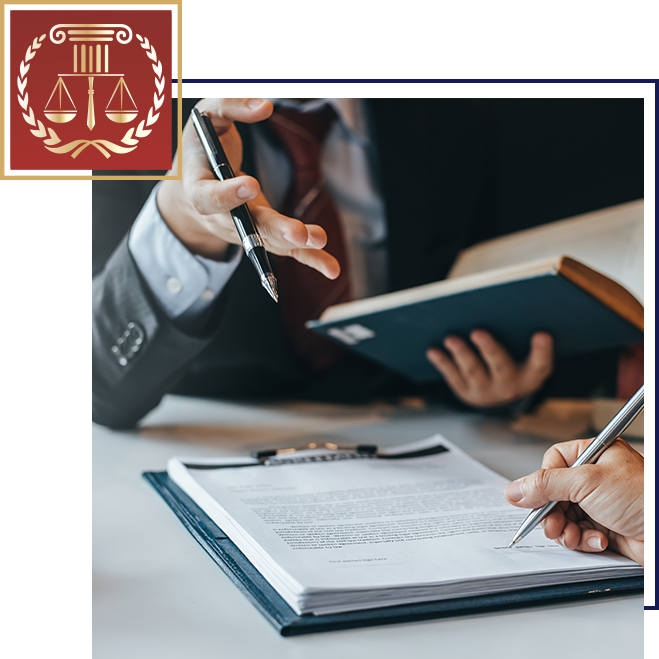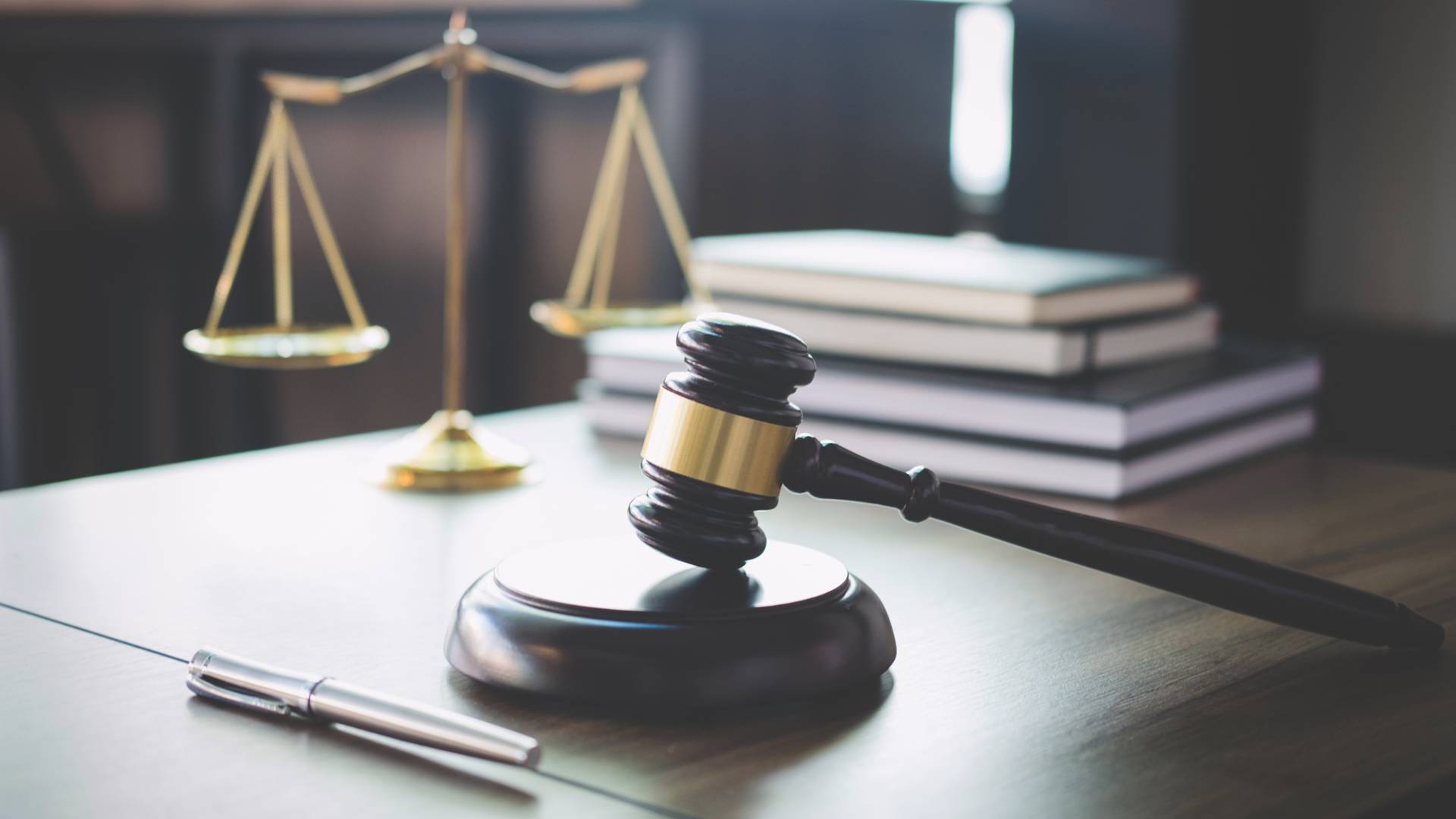
Probation Hearing Lawyers in Westwood
Serving Norfolk County
There are several types of probation in Massachusetts and all types can either be supervised or unsupervised (administrative probation).
These hearings include:
- A Continuance Without a Finding (CWOF). It requires a defendant to admit to sufficient facts to support a finding of guilty. However, no guilty finding is entered, and a defendant is placed on probation for some period of time. This is not considered a conviction or a guilty finding (this can be significant as, many times, job applications will ask if you have ever been convicted of a crime. With a Continuance Without a Finding (CWOF), a defendant can answer “no” to that question).
- Straight Probation places defendant on probation with the court for a set period of time. If the defendant violates his or her probation, with straight probation, the court can impose a number of different sentences. A judge can add conditions, extend the probation, or give a jail sentence.
- A Suspended Sentence is similar to Straight Probation, with one significant difference. If a person on a Suspended Sentence violates the terms of his or her probation, there is a presumption that a jail sentence will be imposed (the length of the jail term is determined by the court when the person is placed on probation. For example, a person may be placed on a sentence of 6 months in jail, suspended for 1 year. What that means is that the defendant will be placed on probation for a period of 1 year. If, during that year, the defendant violates his or her probation, there is a presumption that a judge will impose a 6-month jail sentence.
- A Split Sentence is a combination of a jail sentence and a suspended sentence. A defendant is required to serve some period of jail time and, when they are released, are on a suspended sentence for some period of time. For example, a defendant sentenced to a split sentence of 1 year in jail, 6 months to be served, the balance suspended for 18 months would have to serve 6 months in jail. When they were released, they would be on probation for 18 months. If, during the 18 months, they violated the terms of their probation, the balance of the committed sentence (6 months: the committed sentence was 1 year, the defendant already served 6 months of that prior to being placed on probation), would be imposed.
There are certain conditions that are always going to be in place when someone is on probation. These include a monthly fee, reporting requirements (depending on the level of supervision, this can sometimes be done by mail), and a probationer must receive permission from their probation officer or a judge before leaving the state. Additionally, there may be other conditions that the court imposes on a probationer. These may include random drug or alcohol testing, drug counseling, anger management classes, mental health counseling, or others.
Request your complimentary initial consultation by filling out our online form
or dialing (617) 397-5755 today.
What Is the Court Process for Probation Violations?
When someone is accused of violating their probation, there is a two-part court process:
- First, a defendant will have an Initial Surrender Hearing. When a person violates their probation, their probation officer will either issue and arrest warrant or a summons for the defendant. Their first appearance in court after either being summonsed into court or arrested on the warrant, is their initial probation surrender hearing. At the initial hearing, the defendant will go before the judge, will be given a “surrender notice” describing what the alleged violations are, and a judge will make an initial determination if there is probable cause to believe that the defendant violated their probation. The judge will also decide at that time if a defendant is going to be held without bail until their final probation surrender hearing.
- The next part of the process is the Final Surrender Hearing. You are entitled to at least 7 days between the initial surrender hearing and the final surrender hearing (this can be waived by the defendant if they choose to do so). At the Final Surrender Hearing, the defendant can either admit (stipulate) to violating their probation or go forward with a full surrender hearing. At a hearing, the probation officer must prove, by a preponderance of the evidence, that the defendant violated his or her probation. The probation officer must present some evidence to meet this burden. The defendant has a right to present their own evidence in their defense.
Between the initial surrender hearing and the final surrender hearing, a defendant will either be released by the court, or held without bail (detained).

What Makes Our Firm Different?
We Don't Back Down From a Challenge

-
Local AttorneysOur firm consists of local attorneys who have worked in the area for years. Each attorney is familiar with the courts and has a great reputation within the legal field.
-
Free Initial ConsultationAt Eisenstadt Law, our firm offers a free initial consultation to learn more about your case and to ensure our team is the best fit for you.
-
Aggressive DefenseOur legal team does not back down from a challenge. We fight to ensure that the rights, futures and freedoms of our clients are protected.
-
Proven Track RecordOur attorneys have successfully helped thousands of clients reach a positive outcome in their cases. We have achieved this by using our experience and expertise to our advantage.
-
Accessible to ClientsWe are available 24/7 to best suit the needs of our clients. We pride ourselves on providing each of our clients and their cases with the personal attention and commitment that they deserve.

Client Success Stories
Read What Past Clients Had to Say
-
“They took their time and clearly explained the legal process and what their approach to the case would be. Needless to say, we hired Eisenstadt Law and could not have been more satisfied with their service.”- L.S.
-
“My friend was right to send me your way for my case. I never thought anyone could have gotten me out of trouble but you did it.”- J. S.
-
“We could not believe how quickly you were able to get our son out of jail and were even more impressed with how you were able to get the case thrown out. He was lucky to have lawyers like you on his side.”- J. & B. L.
-
“I thought I was going to lose everything I had until that first court hearing in probate court. The judge immediately agreed with Ed’s arguments and the next week, Joe had the restraining order dismissed.”- K. B.
-
“They reviewed the case with me and explained the legal issues more clearly than any of the other lawyers I had met with. When I eventually met Joe in court I knew that all three of these guys had what it took to defend me.”- R. S.
-
“I knew that I had not done the things that they charged me with but didn’t know how to prove it. I was going to lose my job if the complaint got issued in the clerk’s hearing so it was such a big deal that you kept the police from getting a com”- G. J.
-
“They were efficient and professional. My girlfriend would not stop charging me with false charges of assault and restraining order violations. The DA kept trying to hold me without bail but they didn’t let that happen! Thanks!”- D. L.
-
“We never had any doubt that we were in goods hands with Eisenstadt Law. Our legal matter was handled quickly and with with such care and attentiveness, we felt as if we were their only clients.”- S.S.


Why Clients Choose to Work With Us
Read How We Have Helped Previous Clients
-
Case Dismissed Assault and Battery
-
Case Dismissed Assault and Battery
-
Case Dismissed Assault and Battery with a Dangerous Weapon
-
Pre-trial Probation Breaking and Entering, Resisting Arrest, Disorderly Conduct
-
Not Guilty Domestic Assault and Battery
-
Case Dismissed Felony Larceny